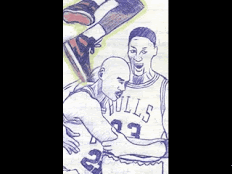When a society is strong and proud of its culture, it is not easy for an individual to convert to another culture. The sense of group identity and solidarity tends to weld the community together as a coherent whole. Lugbara Culture is a set of enduring behaviours, values, ideas, traditions and attitudes that are accepted by a homogenous group of Lugbara people and transmitted from one generation to the next.
While others speak Japanese, let's speak Lugbara and keep it local. Cultural alienation continues up to today through radio, print, TV and video, typical symbols of neo-imperialism. Youths have abandoned traditional morals and are behaving like wild animals. They love the use of foreign languages while downgrading their vernacular or mixing it with unnnecessary foreign phrases. They admire foreign music to the exclusion of local music. The women (Amvusia) bleach their skin, paint the lips and fingers while wearing trousers. They even go as far as refusing their cultural identity and heritage.
Culture can be defined as the total commonly shared way of life in any society. Activities are simply elements within the totality of culture; They constitute subcultures which include shared customs, language, dress, games, food, fighting techniques, technology and architecture. Culture is an expression of the diversity in life and revolves around learned behaviours as well as beliefs, attitudes, values and ideals that characterise society. It is a celebration of people's way of life. Without culture, we would not have myths, taboos, legends, superstitions and of course music. The Lugbara People are the Largest Ethnic group in West Nile. They came from Rajaf in the Juba Region or Baar in Bari Sudan and their diaspora spreads into Kampala, Busoga, Bunyoro, DR Congo, United Kingdom and the States. Music is a very binding characteristic of the Lugbara culture and their folk songs are being fused with modern styles and instruments to produce a breed of characteristic (Lugbara) music we love to call Ongo Music. This kind of music championed by artistes such as J Hope Gospel Band, Leku Culture of the 'Angaika' fame, Moses "Razor" Ezale who sang the 'Tereza' hit about a heart-breaking love experience, the thematically talented Betty Atiku and Gladys Ayakaka (based in the United Kingdom), deejay Ronnie (inspirational Producer at Arua One FM), New Breed Deejays, Bada Culture and Nyakuta (who died in May 2007) is slowly becoming today's mainstream and universal Symbol of Lugbara Culture.
This AikoGraphics (+256-781-345712) Cascade blogs about an amazing Cultural Heritage and includes some of the Old and New Things you need to know concerning the Lugbara World - modern, modest, distinct, wild and truly African. The Lugbara are the Largest Tribe in West Nile... MUNGU ni ambo [GOD is great]!
Aiko TV

Awa'difo mini nerisi...
Nda
Lugbara AI

Ojapi: Transcribe, translate, chat (+256-781-345712)...
O'bi Ni Ne Ndeni [Most Viewed]
-
Pronunciation in Lugbara has diphthong clusters and other noteworthy phonetics including the following: aa as in bat , for example embata...
-
My dream is to post a plethora of Lugbara lyrics and this is one of the very first projects I have indulged myself in. J.M. Kennedy is a ver...
-
e’yo [message, issue], o’diru [new], waraga [letter], 'ba [people], tualu [together], buku [book], isu [find], efini [meaning], osita [b...
-
[INSTRUMENTAL:] [CHANDIRU WHISPERS:] Agasi, aga'bo, agasi! Agasi, aga'bo! [VERSE ONE:] Ini ce ra, ale mi ra! Ico aco ku, ah...
-
"Ngoni?" is the standard Lugbara Greeting (meaning ‘How are you?’). "Muke!" is the Response when you are fine. Neverthel...
-
The foreword of this book is written by Jason Avutia (The Chairman of LULA and an Elder), preface is by Lulua Odu 24th August 1996 Arua, Wes...
-
Hiphop and Reggae are very dynamic and Black Harmony (from West Nile) are the supreme flag bearers of these genres in Lugbara-land. I prefer...

